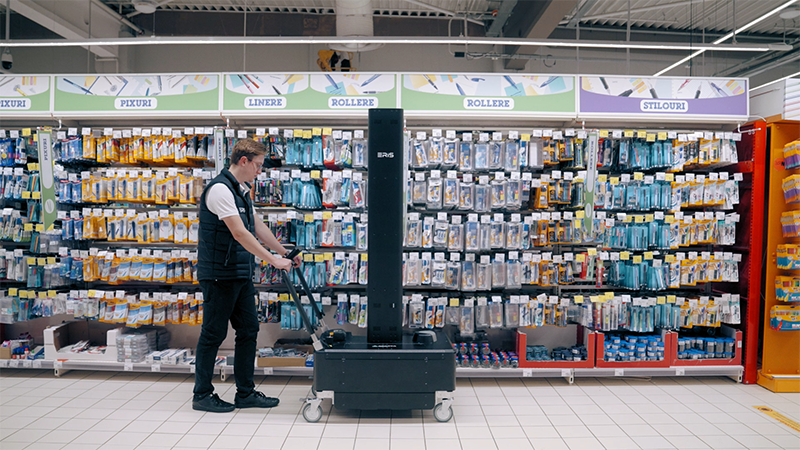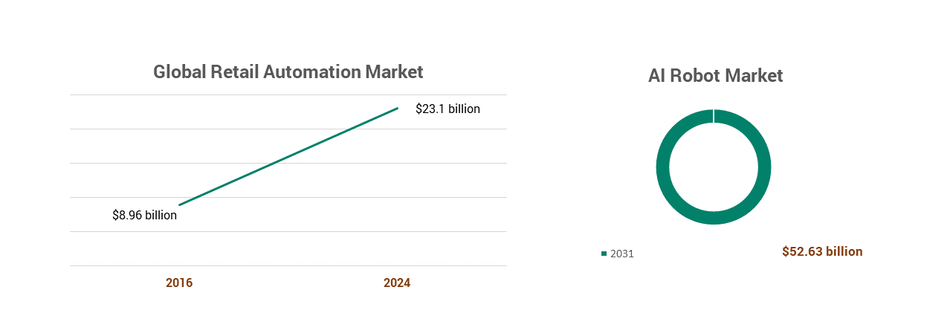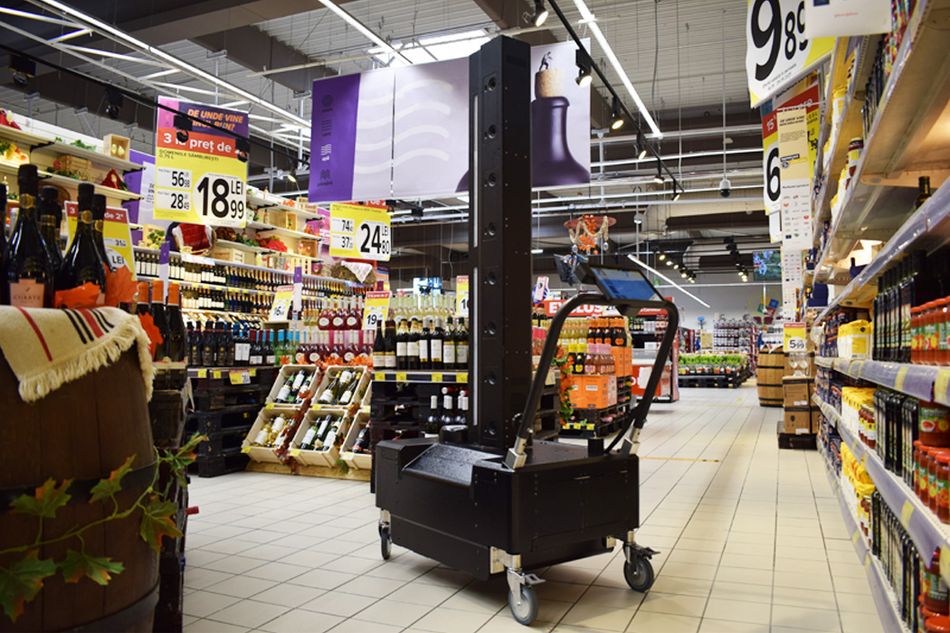How AI-powered robots are transforming the retail industry
In a highly competitive environment, retailers are leveraging cutting-edge technologies to boost efficiency and run their businesses more effectively. AI-powered robots are transforming the retail sector by optimizing pricing strategies, inventory management, and more.

Human & retail robots together solving key issues in the retail industry
The retail world is changing. In today’s highly competitive environment, retailers are leveraging cutting-edge technologies to boost efficiency and run their businesses more effectively.
The emergence of artificial intelligence (AI) in the retail industry has transformed how businesses engage customers, tailor marketing campaigns, and manage their inventory. This approach also helps reduce waste and operational inefficiencies.
According to MarketWatch, the global retail automation market was valued at $8.96 billion in 2016 and is forecasted to be worth as much as $23.1 billion by the end of 2024. Furthermore, the AI robot market is expected to be worth $ 52.63 billion by 2031.
As such, AI-powered automation and robotics are a business imperative for retailers who want to maintain a competitive advantage in the marketplace.

What problems does an AI robot solve in the retail sector?
Retail automation has the potential to optimize customer experiences and drive revenue. However, this doesn’t mean that robots will replace humans. Instead, they will work together to maximum effect.
Humans and retail robots together solve four key issues in the retail industry:
1. Data analytics challenges
Smart algorithms are much better at collecting, processing, and analyzing vast amounts of data from disparate sources in real-time (a feat forever unmatched by human counterparts). It’s also the only way to collect and process data in real-time for analytics. As human and machine collaboration becomes the norm, people that work together with robots will earn more (than those who don’t). Similarly, businesses that leverage this approach will receive a maximum return on investment.
2. Pricing (human) errors
More often than not, digital and physical commerce channels have diverse agendas and follow different methods. While it may seem easier to operate each of them as a separate business unit, this approach often creates more complexity, including on-shelf pricing errors. Trying to match up the online shopping experience is becoming more challenging for brick-and-mortar retailers.
Price discrepancies between the online and physical stores often occur because of human error, data entry and update errors, unapplied promotions or discounts, and various variables specific to the business, location, and so on. Even if online retail grows exponentially, brick-and-mortar retailers are here to stay. However, to remain competitive, they must strive to eliminate potential mistakes caused by human error, considering that as many as 73% of customers stated that customer experiences drive purchasing behavior.
Retail automation can help quickly resolve this issue by alerting staff about price discrepancies. This approach ensures that offline customers have smooth and enhanced shopping experiences. By scanning shelves in real-time, AI-powered robots quickly alert staff to misplaced items and products missing price tags.
3. Inventory management and supply chain challenges
Retail automation keeps pricing up to date and helps avert potential stockout situations. Stockout situations lead to lower customer loyalty, higher operational costs, and higher labor costs (as more staff spend time on inventory activities).
Retail automation guarantees that shelves are always stocked, and customers aren't left disappointed. By analyzing in-store data in real-time while considering external factors and past purchasing patterns, retailers can rethink their old supply chains and quickly adjust their stocks to meet consumer demand.
4. Brand compliance
Some retailer-vendor agreements come with special requests, especially when it comes to where certain products are displayed within a store. In this scenario, retail automation can help quickly detect inconsistencies in product placement to ensure brand compliance.
Why is there a need for an AI-powered robot?
Robots like the Effective Retail Intelligent Scanner or ERIS are necessary to scan all the products within stores and warehouses quickly and accurately. Physically attempting to take stock, check price tags for errors, and look for misplaced items, it could take days or even weeks to complete the task.
In contrast, ERIS with human operators can effectively scan the whole premises to detect errors and anomalies within minutes (depending on the size of the establishment and the number of products available on-premises).
This approach helps optimize employee efficiency and enables data-driven decisions by collecting accurate pricing and inventory data that marketing and supply chain management teams can use.
With solutions like ERIS, potential sales aren't lost to pricing errors or stockouts. Return on investment will also be complemented by customer satisfaction, customer loyalty, and much more. As a human operator is always present, they can solve potential errors on the spot. This approach helps mitigate the risk of miscommunications and provides opportunities to prioritize and escalate issues as needed.
ERIS can also help improve staff morale by taking over the tedious and time-intensive task of detecting pricing errors and managing stock effectively. Although a human staff member will work in collaboration with the smart robot, ERIS is doing most of the heavy lifting.
However, preconceived notions about AI replacing humans continue to derail the adoption of retail automation technologies. But, just like chatbots help customer service representatives by quickly processing simple queries, ERIS makes life a little easier for human colleagues.
Retail automation is the new frontier. It will help businesses better engage their customers, optimize inventory, avoid pricing errors, and maintain business relevance.
Adapta Robotics developed ERIS to solve an age-old retail problem concerning human error and inventory management. ERIS is an innovative and powerful machine, a fast shelf auditing solution that smooths out the transition towards retail automation.
